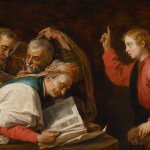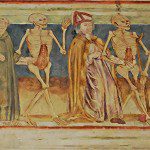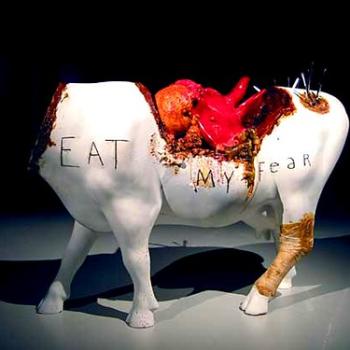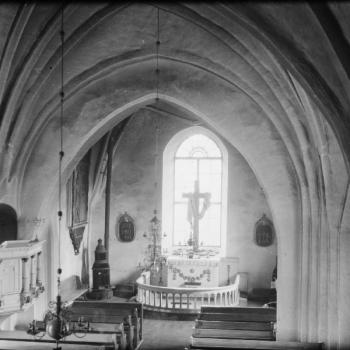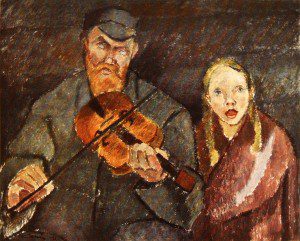
It would be wrong of me to identify as “depressed.” For one, I’ve never been diagnosed. Frankly, unless things were to get impossibly bad, I’m resistant to the idea of what I see as medicalizing a variable and temporary condition (I wouldn’t describe my “depressiveness” as clinical). In my eyes, and in the eyes of many theorists and poets before me, anxiety as many experience it is a particularly modern quality. This isn’t to say that no one felt sad before 1500; rather, for those of us who believe social conditions shape how we think, it’s difficult not to note the emphasis on alienation, lingering depressiveness, and general angst in the reportage and literature of the past 300 years. The Romantic poets decried their exteriority to their age; Marx told us of mothers, sweating before power looms, drugging their children to keep them calm, docile. It seems only to be getting worse as modernity beats on.
Marx holds capitalism responsible for much of our busy alienation (getting and spending, fetishizing everything we buy, etc.). Kierkegaard, less delicately—and certainly more indulgently—put his feelings about contemporary community this way:
I have just now come from a party where I was its life and soul; witticisms streamed from my lips, everyone laughed and admired me, but I went away — yes, the dash should be as long as the radius of the earth’s orbit ——————————— and wanted to shoot myself.
Freud, Camus, Lacan, Sartre—all have had their say. Directors such as Ingmar Bergman, Rainer Werner Fassbinder, and Woody Allen have represented, over and over again, the pain of everyday life. These disparate minds—myself included—might be said to agree on one thing: that this comment (from the Amazon-page comments to an edition of Kierkegaard’s journals) is tragically wrong:
The overpowering sense of guilt that Kierkegaard evidently felt and concluded was the lot of Everyman is better explained by Freud and those who followed him (in the chronological sense, I mean, not as disciples). What we know about brain chemistry, though meagre, is a better explanation of the states Kierkegaard thought were God’s entry point into our souls.
Brain-chemistry-based depression is real. But many of us experience a burden of anxiety that fluctuates environmentally or socially. It’s a feeling of alienation perhaps intrinsic to the human condition, but exacerbated by capital and its effects (the breakdown of the family, the collapse of most other “organic” forms of community, etc.). You might think of it as the shadow of the joyful nihilism (rightly understood) of Qoheleth in Ecclesiastes.
That said, I’m not writing this to complain—verbalization may be important, but not here, not now (and definitely not from me, considering how long I can go on). In fact, I’d say that this “burden” can be very productive. It often leads people to see the world a certain way, to disengage, to not take things too seriously. At its most dangerous, the sense of removal can make one prideful. At its most beneficial, it affords one the necessary space to treat others with disinterested love, with insights derived from (insofar as this is possible) an objective, or at least third-person, perspective.
I’m writing about this, to go a step further, because it has heavily shaped my Catholicism. I was reminded of this by a few, briefly-spoken words in Ingmar Bergman’s The Seventh Seal (a lovely film, but definitely a favorite among—well—depressives): “what will become of those of us who want to believe, but cannot?” Or, as it is put slightly later: “Why does He [God] live on in me in a humiliating way, despite my wanting to evict Him from my heart?”
This is how I feel many days. I look out on a Catholic world seemingly filled with joy, happy to post about the newest happenings in the Church, the smallest squabbles, dedicated to the tiniest of contrivances, when I can barely get up or write anything (of course, I do not know their hearts). What I can write is often too alien to public desire and taste to be worth putting down, or, if anxiety (God forbid) becomes resentment, my thoughts ought be held back for lack of decorum (some days I want to stand on a hill and scream “don’t you all realize one day you will die? There’s only so much time! Your concerns are trivial!”). But such things don’t make for good blog numbers, and, more often than not, are said to ease one’s own pain, rather than genuinely convert anyone (this would seem to be the difference between a charlatan and a prophet).
In this sense, a communal faith is made something deeply (and at times badly) individual. My actual “belief” is rarely questioned—God is the only concept that keeps the bottom of my universe from falling out—and yet there is a sense in which that belief is as much the desire to believe as it is the fullness and joy others seem to mean when they utter the word “God.”
But there is another side to this story too. The tradition testifies to my spirit. This heartens me. The mystics especially seem always on the brink of the void: Pseudo-Dionysius, Eriugena, Meister Eckhart, Julian of Norwich, St. John of the Cross, Angelus Silesius, Simone Weil, Dorothy Day, and Mother Theresa, among many others. Even when they preach and practice love, it always seems to come from this place of desolation, the state Simone Weil might call “affliction.” Hence Mother Theresa’s decades-long dark night in Calcutta; hence Julian’s deathbed visions of divine suffering and love. These lines from Silesius encapsulate the point:
The Cross on Golgotha
Thou lookest to in vain,
Unless within thine heart
It be set up again.
In this sense, I feel my faith deep inside of me, embedded in all my doubts—the void I fear and the God I worship seem not so difficult. As one might put it, the problem of the mystics is that there are only two infinities: God and nothingness—the trouble is telling the difference if there is one at all. There’s lots of complex theology attempting to work out that problem (Eckhart is good on this point), but that needn’t worry us here. The point is that my “depressiveness” (again, I dare not call it “depression”) weighs like a yoked boulder, even as it strikes me as the greatest blessing I have ever received.
Perhaps this post, unlike what I try to do with most of my work here, is a bit formless (like the void that can haunt). Perhaps its purpose is a bit opaque. But, if only one reader has been helped to see inside my mind, if only one person will act with patience and charity the next time he or she encounters someone struggling, if only one of you looks with kindness upon the problems of another who seems caught between faith and doubt, love and pain, then this will have been worth it. At minimum, these thoughts ease my conscience—though that is by far not enough.


